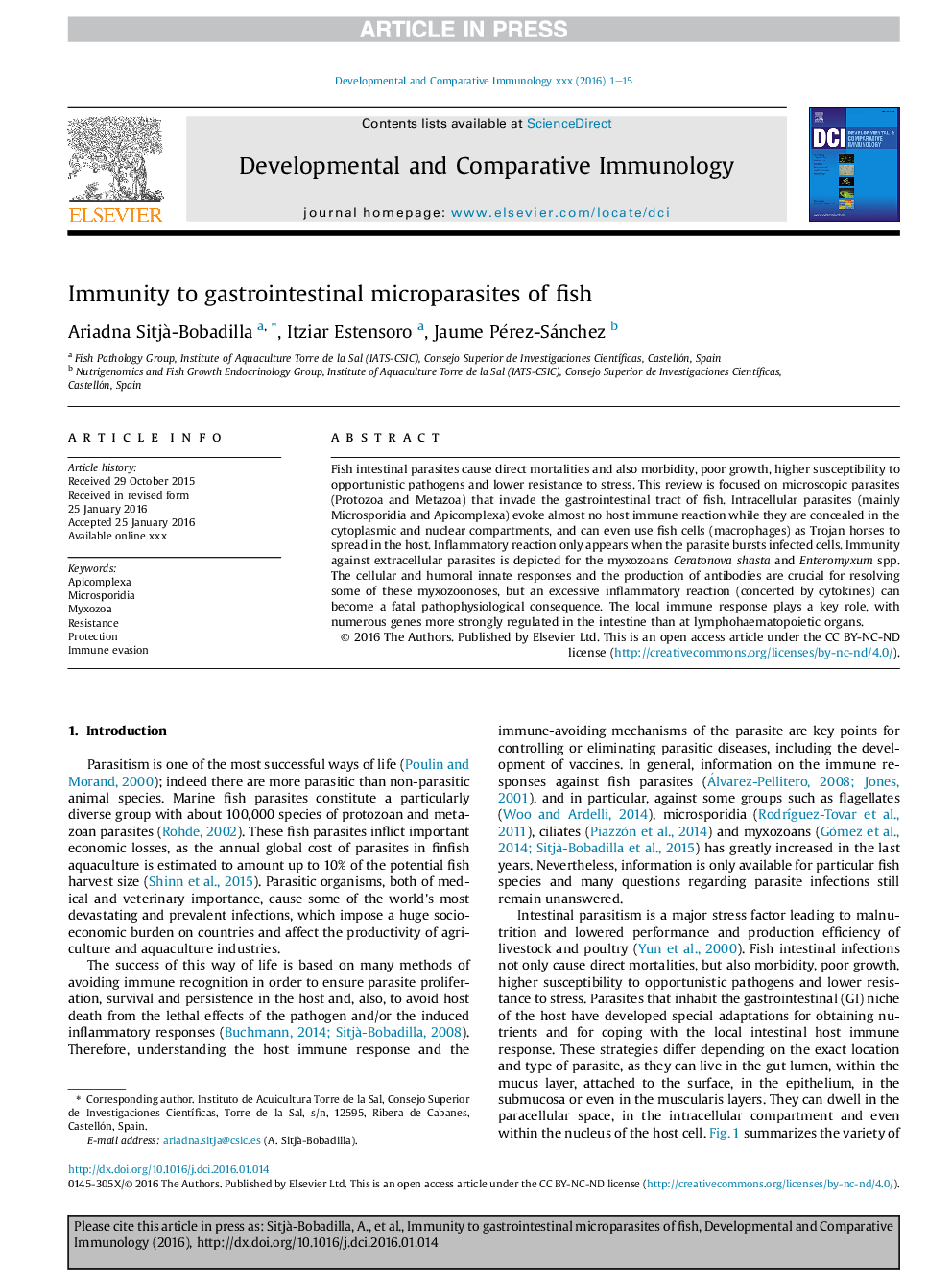| Article ID | Journal | Published Year | Pages | File Type |
|---|---|---|---|---|
| 8497916 | Developmental & Comparative Immunology | 2016 | 15 Pages |
Abstract
Fish intestinal parasites cause direct mortalities and also morbidity, poor growth, higher susceptibility to opportunistic pathogens and lower resistance to stress. This review is focused on microscopic parasites (Protozoa and Metazoa) that invade the gastrointestinal tract of fish. Intracellular parasites (mainly Microsporidia and Apicomplexa) evoke almost no host immune reaction while they are concealed in the cytoplasmic and nuclear compartments, and can even use fish cells (macrophages) as Trojan horses to spread in the host. Inflammatory reaction only appears when the parasite bursts infected cells. Immunity against extracellular parasites is depicted for the myxozoans Ceratonova shasta and Enteromyxum spp. The cellular and humoral innate responses and the production of antibodies are crucial for resolving some of these myxozoonoses, but an excessive inflammatory reaction (concerted by cytokines) can become a fatal pathophysiological consequence. The local immune response plays a key role, with numerous genes more strongly regulated in the intestine than at lymphohaematopoietic organs.
Related Topics
Life Sciences
Biochemistry, Genetics and Molecular Biology
Developmental Biology
Authors
Ariadna Sitjà -Bobadilla, Itziar Estensoro, Jaume Pérez-Sánchez,
